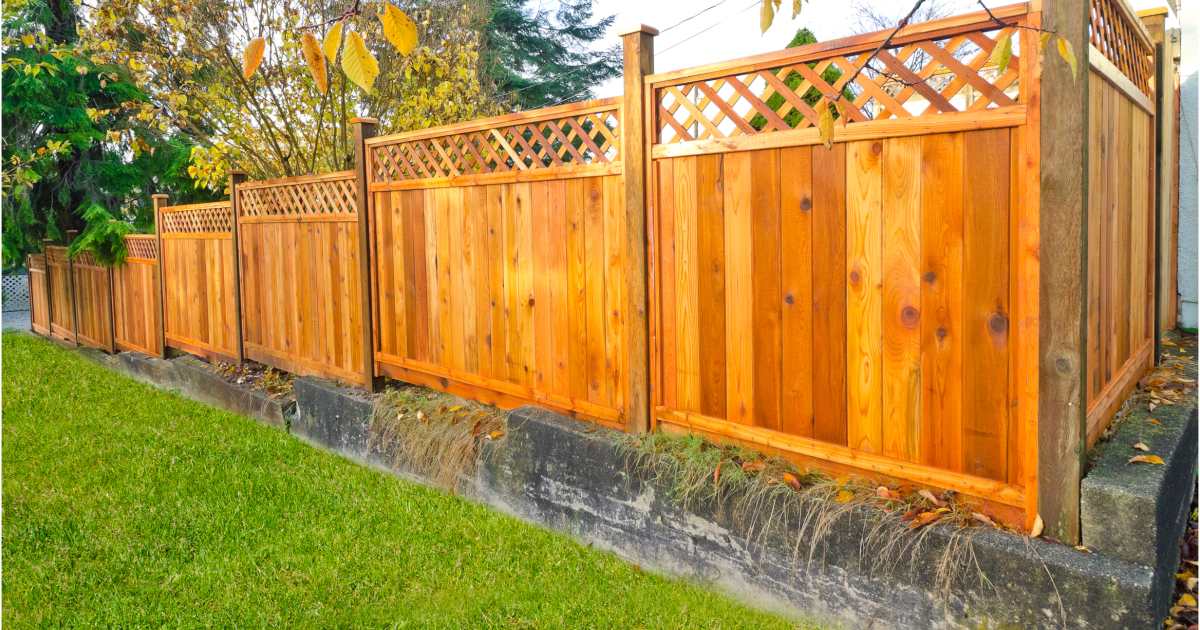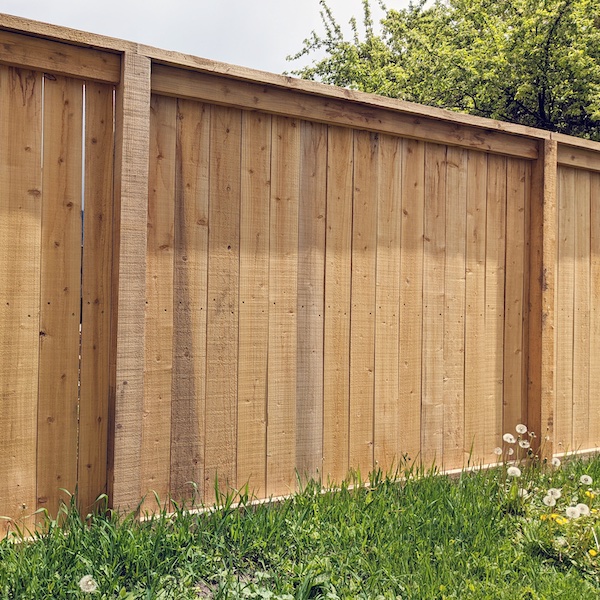Featured
Selecting the perfect fencing product for your residential or commercial property can be a difficult job with the variety of options offered. Whether you're aiming to raise safety and security, enhance personal privacy, or boost the curb appeal of your home or business, the ideal fence can offer several purposes. In this overview, we'll explore different fencing products, their advantages, and which choices may be finest suited for numerous demands.
Advantages:
All-natural Look and Feeling: Timber uses a warm, all-natural aesthetic that matches gardens, grass, and various other outside rooms. Personalized: You can repaint or tarnish wood surround any color, permitting countless design opportunities. Personal privacy and Safety and security: When built as a strong panel, a timber fence can give excellent personal privacy and safety and security. Drawbacks:
Upkeep Required: Timber fences need periodic maintenance to avoid rot, warping, and damages from pests like termites. Vulnerable to Weather Condition: Exposure to snow, sun, and rainfall can weaken the quality of the wood gradually, which suggests you might require to reseal or change boards. Best For: Homeowners trying to find a standard, adjustable fencing with an all-natural appearance.
Advantages:
Resilient and Resilient: Plastic is unsusceptible to the weathering that timber fences experience, and it won't warp, split, or discolor. Low Maintenance: Unlike timber, plastic doesn't need staining or sealing. Cleaning it is as basic as washing it with water. Selection of Styles: Vinyl fencing is readily available in several styles and shades, and some variations also simulate the look of wood. Drawbacks:
Higher Initial Expense: Vinyl fencings can be more expensive to install compared to various other materials, such as wood or chain link. Prone to Cracking: While resilient, vinyl can come to be brittle and crack in really chilly temperatures or when struck with force. Limited Personalization: Unlike timber, vinyl can not be quickly modified, so your layout choices are much more limited. Best For: House owners that prioritize reduced maintenance and long-lasting resilience, and that agree to purchase a higher first price.
Advantages:
Cost Effective: One of one of the most budget-friendly fencing options, making it optimal for huge homes or locations needing substantial coverage. Reduced Upkeep: Wire mesh fence require little to no upkeep past periodic cleaning and repair work. Sturdy and Secure: While not visually enticing, chain web link fences are strong, hard to climb up, and offer a high level of safety and security. Disadvantages:
![]()
Absence of Privacy: A wire mesh fence doesn't offer much personal privacy unless you add slats or various other modifications. Industrial Look: The cable mesh may not enhance all home types, particularly property homes or locations requiring an aesthetic touch. Best For: Big buildings or locations where budget plan is a priority, or for those that need a solid, secure boundary without the requirement for personal privacy.
Advantages:
Solid and Secure: Metal fences offer superb safety and security, as they are challenging to climb and supply a robust barrier versus burglars. Long Life-span: Metal fences can last for decades, especially when dealt with for rust and rust resistance. Stylish Visual: Wrought iron and steel fencings include an elegant, timeless seek to homes, gardens, or commercial properties. Drawbacks:
Pricey: Steel fencings, specifically functioned iron, often tend to have a higher upfront price than various other products. Upkeep Requirements: Steel and wrought iron fencings may corrosion over time otherwise correctly preserved, requiring regular painting or treatment. Restricted Personal privacy: Steel fences are usually open, so they do not provide the personal privacy that strong fences like wood or plastic can give unless incorporated with other materials. Best For: Those looking for a high-security, decorative option with a lengthy life expectancy, especially for high-traffic or upscale locations.
Benefits:
![]()
Reduced Upkeep: Compound fencing requires no paint, discoloration, or sealing. It's easy to tidy with simply soap and water. Resilience: Resistant to rot, parasites, and weather condition, composite fences last much longer than standard timber. Eco-Friendly: Many composite materials are made from recycled timber and plastic, decreasing ecological impact. Disadvantages:
Pricey: The initial cost of composite fencing can be greater than timber or plastic. Restricted Customization: While offered in various colors, composite fences do not use as many style choices as wood. Heavy: Compound products are commonly larger than other types of fencing, which can make setup a lot more hard. Best For: Those who want a low-maintenance, environment-friendly alternative that incorporates the look of wood with boosted longevity.
Final thought. Choosing the right fence material for your building depends on a selection of aspects, including your budget, visual choices, privacy needs, and maintenance readiness. Whether you select the classic appeal of timber, the low-maintenance advantages of plastic, the strength of steel, or the green durability of composite, picking the ideal fence requires cautious factor to consider of your property's special needs. By recognizing the advantages and constraints of each product, you can make an informed choice that supplies long-lasting worth and contentment for your residential or commercial property.
- Wood Fence. Timber fencing is a traditional option for lots of property owners due to its natural beauty, versatility, and capacity to mix effortlessly with various architectural styles. Offered in a selection of styles, consisting of privacy, picket, and ranch rails, wood can be personalized with paint or tarnish to match your desired visual.
Advantages:
All-natural Look and Feeling: Timber uses a warm, all-natural aesthetic that matches gardens, grass, and various other outside rooms. Personalized: You can repaint or tarnish wood surround any color, permitting countless design opportunities. Personal privacy and Safety and security: When built as a strong panel, a timber fence can give excellent personal privacy and safety and security. Drawbacks:
Upkeep Required: Timber fences need periodic maintenance to avoid rot, warping, and damages from pests like termites. Vulnerable to Weather Condition: Exposure to snow, sun, and rainfall can weaken the quality of the wood gradually, which suggests you might require to reseal or change boards. Best For: Homeowners trying to find a standard, adjustable fencing with an all-natural appearance.
- Vinyl (PVC) Fence. Vinyl fences have expanded in popularity due to their low upkeep and resilience. Made from synthetic plastic products, plastic fences are resistant to rot, fading, and parasites, supplying a tidy, modern appearance with little maintenance.
Advantages:
Resilient and Resilient: Plastic is unsusceptible to the weathering that timber fences experience, and it won't warp, split, or discolor. Low Maintenance: Unlike timber, plastic doesn't need staining or sealing. Cleaning it is as basic as washing it with water. Selection of Styles: Vinyl fencing is readily available in several styles and shades, and some variations also simulate the look of wood. Drawbacks:
Higher Initial Expense: Vinyl fencings can be more expensive to install compared to various other materials, such as wood or chain link. Prone to Cracking: While resilient, vinyl can come to be brittle and crack in really chilly temperatures or when struck with force. Limited Personalization: Unlike timber, vinyl can not be quickly modified, so your layout choices are much more limited. Best For: House owners that prioritize reduced maintenance and long-lasting resilience, and that agree to purchase a higher first price.
- Chain Link Secure Fencing. Wire mesh fence are an economical choice for those searching for protection without the high price tag. Generally used in business residential or commercial properties, parks, and big houses, chain web link fencings give a reliable boundary and are offered in a range of elevations.
Advantages:
Cost Effective: One of one of the most budget-friendly fencing options, making it optimal for huge homes or locations needing substantial coverage. Reduced Upkeep: Wire mesh fence require little to no upkeep past periodic cleaning and repair work. Sturdy and Secure: While not visually enticing, chain web link fences are strong, hard to climb up, and offer a high level of safety and security. Disadvantages:

Absence of Privacy: A wire mesh fence doesn't offer much personal privacy unless you add slats or various other modifications. Industrial Look: The cable mesh may not enhance all home types, particularly property homes or locations requiring an aesthetic touch. Best For: Big buildings or locations where budget plan is a priority, or for those that need a solid, secure boundary without the requirement for personal privacy.
- Steel Secure Fencing (Light Weight Aluminum, Steel, Wrought Iron) Metal fences, such as light weight aluminum, steel, and wrought iron, are preferred for their safety and security, toughness, and durability. These products are commonly used in high-security industrial residential properties, upscale suburbs, and those seeking an advanced, ornamental look.
Advantages:
Solid and Secure: Metal fences offer superb safety and security, as they are challenging to climb and supply a robust barrier versus burglars. Long Life-span: Metal fences can last for decades, especially when dealt with for rust and rust resistance. Stylish Visual: Wrought iron and steel fencings include an elegant, timeless seek to homes, gardens, or commercial properties. Drawbacks:
Pricey: Steel fencings, specifically functioned iron, often tend to have a higher upfront price than various other products. Upkeep Requirements: Steel and wrought iron fencings may corrosion over time otherwise correctly preserved, requiring regular painting or treatment. Restricted Personal privacy: Steel fences are usually open, so they do not provide the personal privacy that strong fences like wood or plastic can give unless incorporated with other materials. Best For: Those looking for a high-security, decorative option with a lengthy life expectancy, especially for high-traffic or upscale locations.
- Composite Fencing. Composite secure fencing incorporates wood fibers and plastic to produce a product that imitates the appearance of wood yet is extra resilient and easier to keep. It's a green alternative made from recycled products, making it both sustainable and useful.
Benefits:

Reduced Upkeep: Compound fencing requires no paint, discoloration, or sealing. It's easy to tidy with simply soap and water. Resilience: Resistant to rot, parasites, and weather condition, composite fences last much longer than standard timber. Eco-Friendly: Many composite materials are made from recycled timber and plastic, decreasing ecological impact. Disadvantages:
Pricey: The initial cost of composite fencing can be greater than timber or plastic. Restricted Customization: While offered in various colors, composite fences do not use as many style choices as wood. Heavy: Compound products are commonly larger than other types of fencing, which can make setup a lot more hard. Best For: Those who want a low-maintenance, environment-friendly alternative that incorporates the look of wood with boosted longevity.
Final thought. Choosing the right fence material for your building depends on a selection of aspects, including your budget, visual choices, privacy needs, and maintenance readiness. Whether you select the classic appeal of timber, the low-maintenance advantages of plastic, the strength of steel, or the green durability of composite, picking the ideal fence requires cautious factor to consider of your property's special needs. By recognizing the advantages and constraints of each product, you can make an informed choice that supplies long-lasting worth and contentment for your residential or commercial property.
Latest Posts
Find Out How Your Partner at WyHy Saves You Money on Borrowing and Banking
Published May 26, 25
1 min read
Trustworthy Industrial Roof Services by Weathercraft
Published May 22, 25
1 min read
Boost Your Residential Or Commercial Property with Expenses Door Systems
Published May 21, 25
1 min read